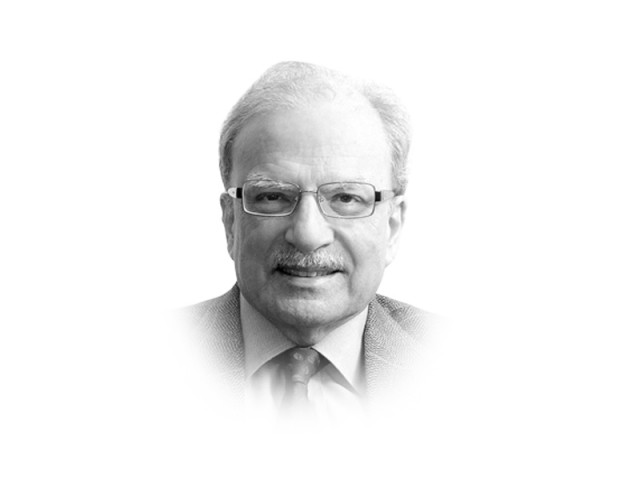Economic priorities
The government should develop a stabilisation programme of its own and return to the IMF by the end of the year.

The writer is a former caretaker finance minister and served as vice-president at the World Bank
On the other hand, the Punjab administration led by the Pakistan Muslim League -Nawaz was given a large mandate. The electorate clearly approved of what the administration led by Shahbaz Sharif did for the province. It also recognised that even though the federal government was not supportive of the provincial administration, Lahore ran the provincial economy to the people’s satisfaction.
The electorate accepted the future prime minister’s claim that Pakistan had sailed into a perfect storm as a result of the poor handling of the economy by the PPP-led government. The electorate bought this message and is putting the messenger back into office. He is expected to move — and move quickly — in four areas: steer the economy out of the stormy water in which it has been left; deal with the growing problem of domestic terrorism; continue with the development of the political order so that it gains the support of all regions and segments of society; and repair relations with the outside world. At this moment, economics should be at the centre of public policymaking.
The markets are expecting the government to move quickly in improving the management of the economy. On the first trading day after the election, the KSE-100 index rose by a staggering 329 points, reaching a record of 20,245. On the following day, it added another 230 points to reach 20,475. The market’s signal was clear: it expected quick action from the government and was placing its confidence that the new policymakers will prove equal to the task. By choosing a person to lead the Ministry of Finance before making any other appointment to the cabinet, the prime-minister-to-be has indicated the importance he is attaching to economic affairs.
The first priority for the new administration should aim to build the confidence of the community of investors, both domestic and foreign, in the country’s economy. As economists have argued for long, confidence about the future is an important determinant of performance. Before the elections, investor confidence had plummeted to the point that the share of national income that was ploughed back into the economy reached the lowest level in the past five decades. There was little capital being invested by foreign entities into the Pakistani economy. In fact, some of the firms that had been present in the country for a long time began to unwind their operations and move out. Domestic investors had also lost faith in the economy’s future. There was anecdotal evidence about capital flight from the country. Instead of risking their capital in domestic ventures, potential investors were prepared to accept much lower returns by placing their money abroad. The fact that the rupee had been sinking in value against foreign currencies, also created an incentive for keeping savings outside the country.
Restoring investors’ confidence, therefore, should be the new government’s highest priority. This raises the obvious question: how should this be done? The first issue the new policymakers will have to tackle is concerned with the management of foreign reserves. Pakistan owes large amounts of money to the International Monetary Fund (IMF). There has been a steady decline in the reserves available to the country to pay for the difference between export earnings and import expenditures and to service foreign loans. The latter includes the scheduled payments to the Fund. One solution will be to return to the IMF and ask for it to finance a new programme aimed at stabilising the economy.
The programme will have to be supported with the flow of IMF money, which is more than what is owed to the institution. It must also provide enough financial resources to keep the country solvent for at least a couple of years. This means a programme of the same size that was signed with the Fund in 2008. Would the IMF be prepared to do this, given Pakistan’s past record? The country has signed on to many Fund programmes but completed only a few. Before concluding another programme, the Fund will ask for the implementation of what in its language are called “prior actions”. These will undoubtedly include a significant reduction in the fiscal deficit, which in turn, would require major changes in tax policy and the system of tax collection; withdrawal of many subsidies that put a large burden on the government’s budget; reform of power tariffs; and reduction of the large deficits incurred by several state-owned enterprises. It is only after these actions have been taken, that the IMF staff will be able to take a new programme to its board of directors, which will look at it with great scepticism.
The other approach would be for the government to take a few months to develop a programme of its own and return to the Fund by the end of the year. I would favour the second approach.
Published in The Express Tribune, May 20th, 2013.















COMMENTS
Comments are moderated and generally will be posted if they are on-topic and not abusive.
For more information, please see our Comments FAQ